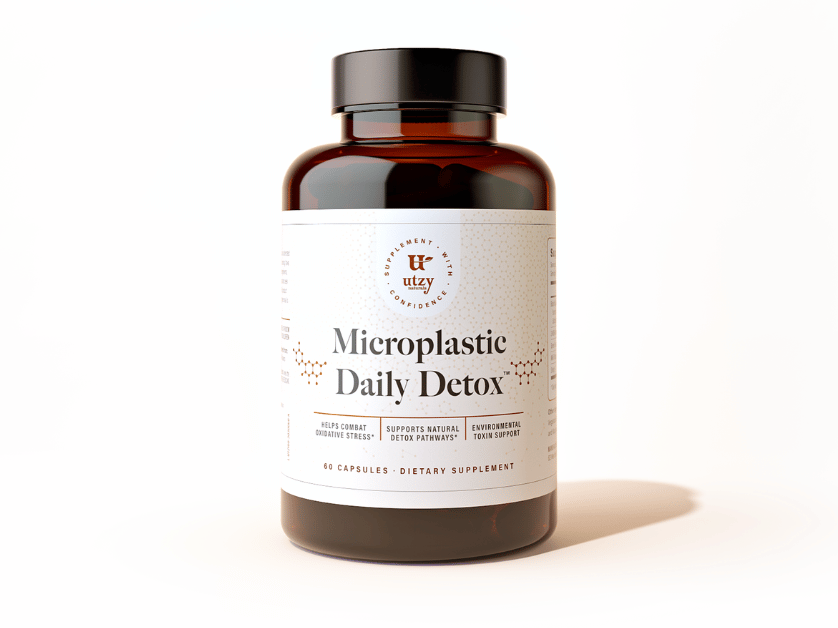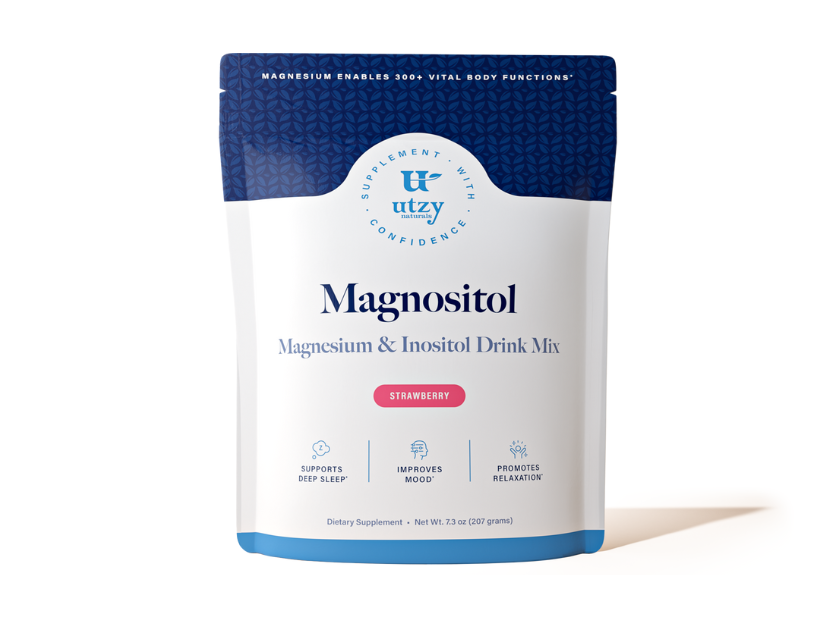shop
learn

How to Improve Your Sleep Quality in 2024
January 17, 2024 4 min read
Getting high-quality sleep is one of the most important things you can do to impact your health.
Just ask Lebron James, Roger Federer, Usain Bolt and other elite athletes about the importance of sleep (1).
They all swear by the importance of sleep.
If superstar athletes place such a high priority on sleep because of the performance boost it gives, shouldn't we as well?
Here's how you can optimize your sleep in 2021.

There are Two Key Components for Optimizing Sleep:
There are two main key ways to increase your sleep quality.
Sleep quantity and sleep timing.
We'll go over them below.
1. Increase Your Total Amount of Sleep:
Like many things in life, how much sleep one needs falls along a bell-curve. Most humans need an average of 8.4 hours of sleep per night in order to perform at their (relative) best.
This has been empirically studied and validated across decades of research.
Make it a priority to get 8.4 hours of sleep each night.
There aren't too many action tips I can give here other than to go to bed earlier, or to wake up a bit later.
Make it a priority.
If you have trouble sleeping, read our 10 Tips on How to Get a Full Night's Sleep.
2. Optimize Your Sleep with Sleep Timing:
Timing really is everything.
Our bodies and brains have self-sustaining biological clocks that determine our energy levels.
These biological clocks determine our hunger levels, alertness, hormone production, etc...
In the lab, I study the body clocks of both mice and men.
What we consistently find is that nearly every type of behavior that is considered “routine” becomes hard-wired.
Meaning that our daily habits determine our energy and wakefulness, as well as our sleepiness (which is important when it's bedtime).
When you set in place good routines and habits, you are able to optimize your sleep and recovery.
As humans, we benefit greatly from routine.
Throughout the night, the timing of sleep dictates how much the body transitions through two very important types of sleep.
We'll dig into these two sleep types below.
The first type of sleep is known as Non-Rapid Eye-Movement (NREM) sleep.
It promotes recovery and repair in your body. This is the time when your body physically rebuilds itself.
➡️You can read more about Non-REM Sleep here.
The second type of sleep is Rapid Eye-Movement (REM) sleep. In pop culture, REM sleep is talked about much more than NREM sleep, and rightfully so!
When REM sleep occurs, it's the time that your brain is cognitively restored.
We selectively process, encode, and store information, skills, and life events during REM sleep. In fact, researchers have found that people who are actively deprived of REM sleep often have poorer performances on motor skills and mental exercises.
These performance decrements can be restored with a power nap in the afternoon - a time when REM sleep is physiologically favored.
➡️You can read more about REM Sleep here
Tips for Optimizing Sleep:
Below are a few ways that you can optimize your sleep at night.
Implement these tips and watch your sleep quality, and quantity, skyrocket!
1. Minimize Light at Night

The light emitted from cell phones, tablets, and HDTVs actively suppresses the release of melatonin: “the hormone of darkness”.
Melatonin is released to help us fall asleep and stay asleep.
However, melatonin release is extremely sensitive to light, particularly LED light. Put away your technology at night and read a classic!
2. Keep a Sleep Journal

There are plenty out there. Check out Apple’s ‘Health’ app or this free resource from the Sleep Foundation.
While most (if not all) do not accurately detect deep stages of NREM sleep or REM sleep at night, these devices promote goal-oriented behavior at the very least.
Pen and paper work just as well.
3. Focus on Nutrition:

Science is constantly proving that “we are what we eat.” You may have come across the buzzword “microbiome” - the idea that our guts’ bacteria have a directly profound effect on physiology and behavior. Ratios of good versus bad gut bacteria are dependent upon the food we eat.
Prioritizing greens, healthy grains, fats, and proteins throughout the day stabilizes the body’s blood sugar levels. Eating a low sugar, high protein snack before bed prevents blood sugar levels from spiking during the night partly due to its slow digestion.
BONUS: Three Nutrients to Prioritize For Better Sleep:
• MagnesiumMost people are magnesium-deficient and need to supplement. In fact, research shows that half of the US population is deficient. Magnesium helps to maintain a healthy neuromuscular system, allowing you to become fitter, faster, stronger, and sleep better. Foods rich in magnesium include dark leafy greens (e.g., kale and spinach), almonds, cashews, black molasses, nuts, and seeds---especially those of the pumpkin and squash variety.
• Vitamin E and Iron
Restless legs syndrome and general nervous system fatigue are common with intensive training. Vitamin E and iron help to maintain a healthy vascular system, helping with oxygen transport. Foods rich in Vitamin E and iron include sunflower seeds/oil, red meat, and eggs.
• Vitamin BVitamin B is well-known to promote energy and alertness, but do you know that it can also promote sleep? Vitamin B aids in the conversion of the amino acid tryptophan into serotonin: a neurochemical driver of sleep. One lesser-known but potent source of Vitamin B and other valuable nutrients is blue-green algae.
Conclusion:
Take from a sleep scientist, getting proper sleep is crucial.
Do whatever you can to achieve the golden 8.4 hours of sleep per night.
It’ll be the single greatest thing you can do to positively impact your health in 2021.
____________________________________________________________________

Other Resources for Optimizing Sleep:
1. My book, “Meathead: Unraveling the Athletic Brain” describes many unique properties and functions of sleep tailored towards bettering human performance.
2. Podcast on How To 10X Your Sleep
Leave a comment
Comments will be approved before showing up.
Also in Health
Subscribe
Sign up to get the latest on sales, new releases and more …
Join the Utzy Naturals Club!
Sign up and get the latest on sales, new releases, and more...






